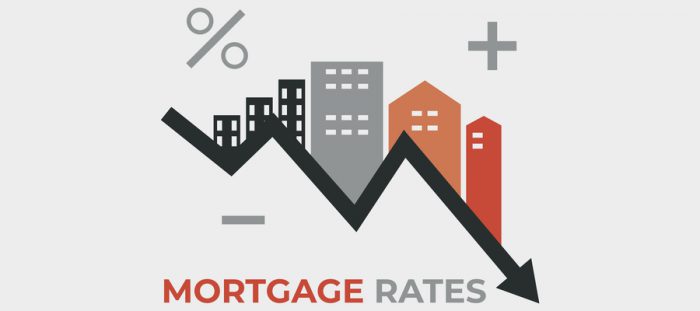The Mortgage Report – May 31
- And One of Them’s Bad: If you’re rooting for lower mortgage rates, one of the following must happen:
- Bond yields must drop to record lows
- Bond yields steer fixed mortgage rates and are largely a reflection of Canada’s economic (inflation) outlook
- Rooting for economic pain—so mortgage rates fall—isn’t exactly a patriotic sentiment, so we’d rather see one of the next two scenarios.
- Credit spreads must shrink
- Credit spreads are metrics that tell us how much more lenders must pay to raise money, relative to the Government of Canada.
- In the 5-year bond market, for example, borrowing costs are at least 30 bps above normal for the average big bank. (That’s helping to prop up fixed mortgage rates despite government efforts to cheapen mortgage-backed securities, says the Bank of Canada.)
- Banks must compete harder
- More often than not, when bank profits come under pressure, they try to keep lending rates inflated to maximize margins, as they’ve been doing for weeks.
- With future credit losses staring them in the face, few expect banks to deviate from this playbook near-term.
- Bond yields must drop to record lows
All of these things—falling yields, narrowing credit spreads and more discounting—could easily happen by year-end (not a prediction, just fact). Spreads and discounting will naturally improve if/as mortgage default fears subside.
- Star Trek Finance: “We would describe the current environment as going where no one has gone before,” said National Bank CEO Louis Vachon this week. His statement comes after big banks set aside 500% more money to cover bad loans last quarter, “an excellent proxy for how worried they are,” writes Pete Evans.
- Heed the Correlation: Fannie Mae predicts the benchmark 30-year mortgage rate will fall about 20 bps within nine months or so. That would officially put it in the 2% range for the first time ever. The relevance to Canadian mortgage rates is two-fold:
- Fannie Mae, as one of the biggest mortgage funders on the planet, has conservative, widely respected forecasts, and
- There’s a 93% correlation between U.S. 30-year rates and Canadian 5-year fixed rates.
If American 30-year loans do sink to 2.99%, Canadian 5-year fixed rates could easily break 1.99%. On insured mortgages we’re already less than 10 bps away from the magical 1.99% mark.
- GDP “Surprise”: It’s not often you say a 7.2% drop in GDP is “better-than-expected,” but March’s GDP number was better-than-expected (the consensus was -9%). For Q2, economists still expect a -41% annualized plunge, according to a Bloomberg survey.
- “Madness”: That’s how CMHC’s CEO reportedly characterized the disorganization that went into determining who CMHC would report to after the Liberal cabinet shuffle.
- Factoid: Some housing recoveries take years. “…Home sales in the U.S. still far below their peak 2006 level even today,” says Capital Economics. That’s how exuberant things got before the last global financial crisis.
- Quotable: “All models are wrong, but some are useful.” An apropos statement about today’s home price forecasts, writes Murtaza Haider.

 log in
log in


3 Comments
What do you think about this? Did they just announce no more refis for owner occupied? or multi unit only? seems like big news regardless?
https://twitter.com/ewsiddall/status/1266747386015211522
Hi Frank, That change applies to multi-unit CMHC insured properties only. We’ll provide a rundown in today’s report.
I wouldn’t be surprised to see rates go up a bit as the recovery makes headlines and then totally flop back to new lows.